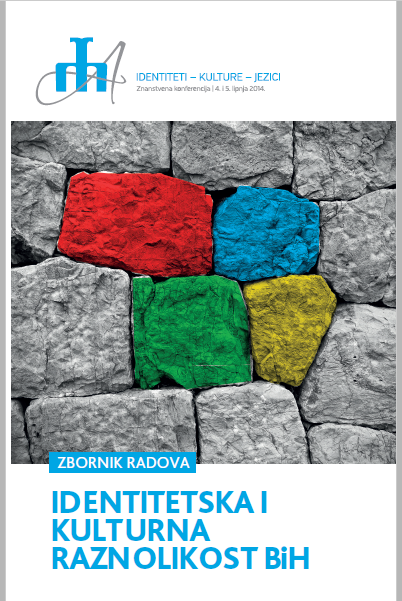FENOMEN NEPOSTOJANJA DIJALOGA U MULTIETNIČKOJ BOSNI I HERCEGOVINI
THE PHENOMENON OF THE NON-EXISTING DIALOGUE IN MULTI-ETHNIC BOSNIA AND HERZEGOVINA
Author(s): Milan VegoSubject(s): Politics / Political Sciences, Social Sciences, Nationalism Studies, Inter-Ethnic Relations, Ethnic Minorities Studies
Published by: Filozofski fakultet Sveučilišta u Mostaru
Keywords: Bosnia and Herzegovina; divided society; intercultural dialogue; understanding and respecting the difference; national question
Summary/Abstract: Existing for 45 year in former Yugoslavia, Bosnia and Herzegovina has built a multi-ethnic, multi-confessional society, which by implementing Tito´s idea of “fraternity and unity” has come to the top of the Yugoslavian scale of the “most multi”.That is why Bosnia and Herzegovina has been called “mini Yugoslavia”. With the destruction of communism and the breakup of Yugoslavia, and all the horrible war events this former, and since 1992 independent and sovereign, republic went through, it is her multi-ethnicism the one that has been destructed resulting in war ones against the others. Love and respect have grown into hate and persecution of minority groups. Nowadays, twenty years from the war, the condition has been stabilized. People are travelling, working and restoring good neighbourly relations. There is a new generation of young, unburdened people who are living in another information age, in a world that will have a brighter future. The question remains open about the conditions this society gives and whether it provides these people the basic life values and human rights. The tragedy and the majority of this country´s problems stand in the unsolved national question that can, under certain circumstances, lead to the most terrible crimes. Politicians cannot agree on the relevant questions, so there is a necessity for the presence of the international community in Bosnia and Herzegovina, which has become its specific protectorate. The last war has brought up the segmentation of nationality, and those issues that have not been clarified through war, are now being addressed through politics and diplomacy. The significance and value of dialogue are being neglected. The ruined economy and the high level of unemployment contribute to the dreary image of reality. The question is how to provide intercultural dialogue in a country like this one. History teaches us that after every war things were discussed. The assumption to this in Bosnia and Herzegovina is the creation of a functional and normal state which will not depend on the international community and the solution of the national question. This condition of a destructed economy, the consequences of war, and the non-existent political volition for progress will not make Bosnia and Herzegovina a functional state. The author analyses the condition in Bosnia and Herzegovina, the relations of three constitutive ethnic corpuses, the establishment of true dialogue and seeks a way out of the Dayton-blind street.
Journal: Identiteti - Kulture - Jezici
- Issue Year: 1/2015
- Issue No: 1
- Page Range: 195-206
- Page Count: 11
- Language: Croatian

